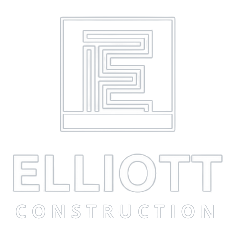9th december 2021
Self-Build Mortgages
Self-build mortgages offer a finance structure that gives you the cash flow you need for a self-build when you need it. Find out how they work, how to get one, plus the latest rates.
Self-build mortgages behave in a different way to traditional mortgages, releasing funds in stages that create the cash flow needed for building a home, paying for materials, and paying your contractors.
This makes self-build a viable option for those who can’t afford to finance the entire build-out of pocket. However, there are some limitations that come with this type of mortgage. They’re less widely available, which means they may be less competitive, and depending on the type of self-build mortgage you choose, they may not offer the best rates.
More details have also been released about the government’s new Help to Build scheme, and how this affects self build mortgages.
Self-build mortgages are largely provided by specialist providers, so there are fewer products available than standard mortgages.
Build Loan and Bath Building Society has released four new self build mortgage products to replace their existing deals. The new interest rates are up to 0.25% less than the previous mortgage offers, with a rate of 3.65% with a maximum loan to value (LTV) of 85%. There’s a two-year discount rate of 3.85% with a maximum LTV of 85 percent.
BuildLoan and Buckinghamshire Building Society
This product has a 3.79% initial pay rate, and a completion fee of £1,499. It releases up to 85% of build costs on completion of each stage of the work, linked to building costs rather than site value.
Harpenden Building Society
This provider has improved their rates in recent months, offering a pay rate of 3.69% for mortgages between £75,000 and £999,999 and 4.19% for mortgages between £1m and £2m. The updated deal also allows for flexible construction types, from independent builds to those that are not linked to stage-based buildings.
What is a self-build mortgage?
Where traditional mortgages will release funds in one lump sum upon completion a self-build mortgage usually releases funds at stages throughout the build.
Before you get started applying for a self-build mortgage there are a few key considerations to factor in:
- It’s wise to add on a contingency fund for any problems you may encounter further into the build too
- The interest rates are typically higher than the standard house mortgage or remortgage rates and the arrangement fees also vary from lender to lender
- Once your self-build is habitable, some lenders will allow you to switch to a lower rate of interest
When Are Funds Released for a Self-Build mortgage?
For a self build mortgage
With a self-build mortgage, funds are typically released at these key stages of a self-build schedule:
- Land (with the minimum of outline planning permission)
- Substructure
- Wallplate/eaves height (just before the roof trusses go on)
- Wind and watertight roof tiled
- First, fix
- Second fix
- Certified completion
For custom build or group self-build projects:
- Purchase of land
- Associated preliminary costs and substructure
- Construction to wind and watertight stage
- First, fix
- Second fix
- Completion
There are two types of self-build mortgages that you could choose from:
- Arrears mortgages: If you have a large amount of cash to hand to finance some of your self build a home, an arrears-type self-build mortgage is your best bet. These offer payments in stages after each stage of the build is complete, meaning you front up the money for the stage and are ultimately repaid.
- Advance mortgages: For those reliant on the mortgage to fund each stage, an advance mortgage releases payments at the start of each stage. This will mean you don’t require short-term or bridging loans to cover the build costs upfront if you were to take out an arrears self-build mortgage. For many people, this type of mortgage is understandably advantageous offering help with cash flow, however, there are fewer providers who offer this kind of mortgage, and the rates may not be as competitive as an arrears type mortgage.
Some lending institutions lend on the land purchase or existing property and at key stages during and on completion of the building project.
This can vary from:
- 75-80% of the purchase price or valuation (whichever of the two is the lower)
- Up to 80% of build costs
- Up to 75% of the growth in value of your project at key stages during construction
Some lending institutions do not lend on land, but they will lend during the build period.
Products available include:
- Discount from a standard variable rate of interest
- Fixed-rate of interest
- Bank base rate tracker
- Offset
The documentation required is essentially the same as a standard mortgage. However, additional supporting documentation will be required, which may include:
- Copy of planning permission
- Copy of construction drawings and specifications
- Copy of total project cost estimate (where possible, fixed-price contracts)
- Copy of Building Regulations approval
- Copy of site self build insurance and structural warranty
- Architect’s professional indemnity cover (if required)
- SAP calculation (this will be in the Building Regulations package)
- Experian credit report
An initial valuation will be carried out to establish current value and anticipated end value, too. (You will be required to pay the valuation fees.) Interim and final evaluations will also be requested and carried out by an RICS valuer.
The reports will be presented to the lender to evidence the increase of the interim value(s) prior to interim and final release of funds from the lender.
Other key points to consider, include:
- A typical timescale for processing a stage release mortgage is up to three months
- Consultants, brokers, banks, and building societies will carry out a forensic analysis of all supporting documents
- In particular, they will focus on income and expenditure cross-checked with the bank statements


